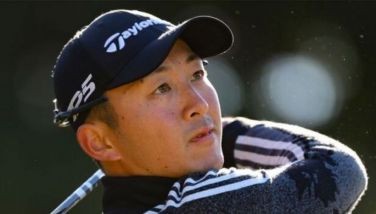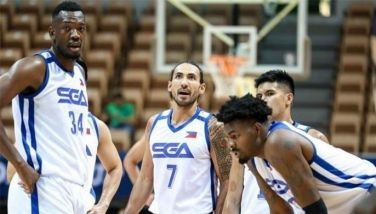A return to reason
Christmas season is generally the lean time of the year for sports. Most sports leagues have finished their tournaments, and save for the NBA and PBA, there isn’t much to watch on television or cable. This is the time of the year when we see journalists scraping for stories, or trot out features they have been compiling the entire year. Much of what will be written doesn’t really have anything to do with actual games themselves, but more of what sports personalities have done or are doing to fill in their down time at the end of the year.
Generally, we see a few template stories. First, who have been the outstanding athletes of the year, who have broken records, gained in popularity, renewed for larger contracts, transferred teams, called it quits. Next, we learn how our favorite athletes are spending the holidays, stories which only cost reporters a few minutes on the phone or online, or a few text messages. Third, we receive reports of plans for the following year: rule changes, trades, other personnel shifts. After all, the news cycle runs year-round, and only pauses on Good Friday, Christmas Day and New Year’s Day, if at all.
The explosion of social media, much like the proliferation of newspapers after the 1986 People Power revolution, has pretty much given everyone a place in the spotlight, no matter how small their slice of the pie. There is always so much positivity to write about, achievements to trumpet, rewards for sacrifice to document. There is a greater sense of vigilance, of watching out for one another, of personal and collective responsibility. Everyone has a platform, and the Information Revolution Alvon Toffler predicted two decades ago has finally manifested itself fully. Citizen journalism has been harnessed successfully.
However, much like Shakespeare’s fear of the unknown in the Hamlet’s famous soliloquy predicted,
“The undiscovered country, from whose bourn
No traveller returns, puzzles the will,
And makes us rather bear those ills we have
Than fly to others that we know not of?”
The new status quo also brings with it new, unforetold challenges nobody could have seen coming. With everyone of note (and many who aren’t) posting their opinions online any time day or night, news agencies have tried vainly to keep up. This has had two effects. First, it creates new streams of stories where they once weren’t any. Secondly, it involves reactions of the general public, in a futile attempt to read the temperature of the social media universe. In other words, news agencies feel compelled to add unchecked, even unedited comments from unknown sources, simply to stay relevant with Twitter, Instagram, Facebook, and their progeny. It outs us in a very dangerous position, for the sake of expediency. There is simply no time to check everything.
Time was when the chief pipeline between reader and media was the handwritten letter. It required one to sit down, and calmly discourse their opinion in a passionate but logical manner. The mere act of sitting down required a calm that is absent from the millions of knee-jerk uncouth comments we see every day. In short, everyone is a target, and you can’t tell who’s shooting at you, or why. The online op is forcing the media to conform to it, not the other way around.
Take two recent stories: former NBA All-Star Gilbert Arenas’ jab at the WNBA, and Aldin Ayo’s departure from Letran to De La Salle. On the surface, an insult from a disgraced criminal element who no longer plays in the NBA should mean very little, if not for his legion of “followers” online. This naturally spurred reactions from the WNBA itself, and its players. Arenas, who was suspended by the NBA in 2009 for possession of firearms, suggested that the players compete in skimpy underwear to boost viewership. Traditionally, journalists ignored comments like that from someone with Arenas’ current status. This is vastly different from the opinion of US presidential aspirant Donald Trump regarding barring Muslims from entering and staying in his country. Yet, by the coverage, you couldn’t tell the difference.
On the local front, Ayo’s sudden departure from the Knights after leading them to their first NCAA title in a decade left a lot of hurt feelings in the Letran community, more so because of the anticipation of more success in coming years. There has been much bile thrown his way, particularly when the question of motivation is raised. But let’s consider that collegiate coaches, unlike their players, are paid professionals, not student amateurs. He has his reasons for leaving, and whatever they may be, second-guessing them fuels only more stories, not more intelligence on anyone’s part. The constant practice of one online sports journalist of quoting a sports official today only to publish a denial the day after serves a similar non-purpose.
An even more disturbing trend is all the armchair fans with nothing to say saying it, to harmful effect. Some are simply angry about something else, some are simply biased, but the side effect is quite an opposite reaction, those being commented on become desensitized and eventually just don’t care what other people say. That in itself is a permanent harm to all concerned.
What has made our sports fans – and social commenters in general – so bitter and unreasonable? Even this Christmas, the storm of negativity has not abated. Perhaps that is what we should wish for this holiday season, a return to reason.
- Latest
- Trending





























